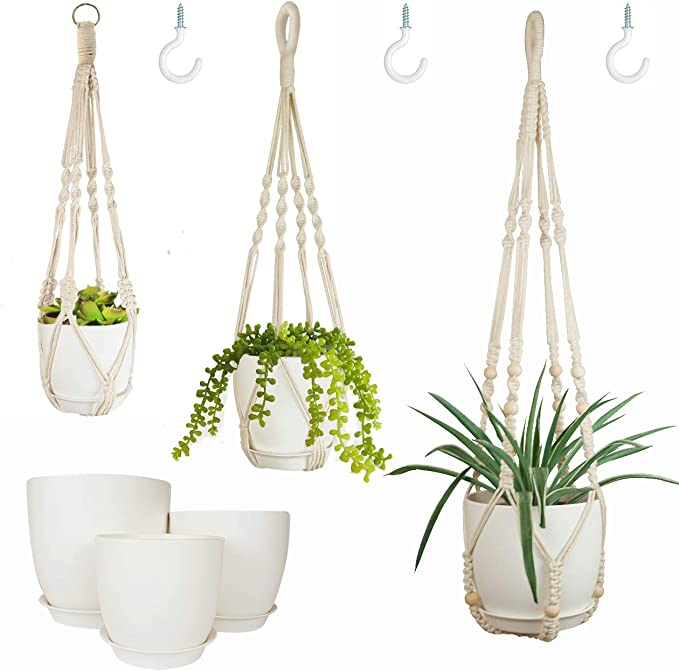If you’re looking to spruce up your office space, adding some plants is a great way to do it! Not only do plants improve the look of your office, but they also have some great benefits for your health and productivity. In this blog post, we’ll show you how to choose the best plants for your office and give you some tips on how to care for them.

The benefits of plants in the office.
Plants boost morale.
Plants reduce stress levels.
The presence of plants in the office has been shown to have a number of benefits, both for employees and for the business itself. Plants improve air quality, boost morale, and reduce stress levels, making them an ideal addition to any office space.
Plants improve air quality.
One of the most important benefits of plants in the office is that they help to improve air quality. Indoor air can be up to five times more polluted than outdoor air, and this pollution can lead to a number of health problems including headaches, fatigue, and difficulty concentrating. Plants help to filter out harmful toxins and pollutants from the air, making it cleaner and healthier to breathe.
Plants boost morale.
Another benefit of plants in the office is that they can help to boost employee morale. Studies have shown that workers who are exposed to nature are happier and more productive than those who are not. Having plants in the office provides employees with a connection to nature, which can help them feel happier and more engaged with their work.
Plants reduce stress levels.
In addition to improving air quality and boosting morale, plants also have been shown to reduce stress levels among employees. The act of caring for plants has been shown to be therapeutic and can help people to feel more relaxed and less stressed out about their workday.
The best plants for the office.
If you’re looking for a desk plant, there are a few things to keep in mind. First, how much light does your office get? If it’s a sunny spot, you’ll want a plant that can tolerate direct sunlight, like a succulent. If it’s a shady spot, look for a plant that doesn’t need much light, like an air plant. Second, how much moisture is in the air? If your office is on the dry side, choose a plant that doesn’t require much water, such as a cactus. If it’s more humid, you can go for something that likes moist conditions, such as a fern. Third, how much space do you have? If you only have a small area on your desk, go for something compact and low-maintenance, like a snake plant.
Floor plants.
When choosing floor plants for your office, there are a few things to keep in mind. First, how much light does your office get? If it’s a sunny spot, you’ll want a plant that can tolerate direct sunlight, like an umbrella tree or palm tree. If it’s a shady spot, look for something that doesn’t need much light, like an elephant ear or peace lily. Second, how big is the space you have to work with? If you have a large room, you can go for something taller, like bamboo or dracaena. If you have limited space, choose something smaller, like spider plants or azaleas. Third, what kind of maintenance are you willing to do? Some plants require more care than others, so be sure to choose one that fits your lifestyle.

Hanging plants
Hanging plants are perfect for adding some green to your office without taking up too much space. There are many different kinds of hanging plants to choose from depending on your needs. For example, if you’re looking for something low-maintenance, consider spider plants or pothos. These types of plants don’t need too much watering or pruning. If you’re looking for something that adds color to your space, consider impatiens or petunias. These flowers come in many different colors and will brighten up any room. No matter what type of hanging plant you choose, be sure to place it near a window so it can get enough sunlight.

How to care for office plants.
The first step to keeping your office plants healthy is proper watering. How often to water your plants will depend on the type of plant, the size of the pot, the time of year, and whether the plant is in a sunny or shady location. Use your finger to check the soil before watering, and water only when the top inch or so of soil is dry. Overwatering is just as harmful as underwatering, so be sure not to let your plants sit in water.
Light.
Just as with people, plants need sunlight to grow and stay healthy. The amount of sunlight a plant needs will depend on the type of plant; most desk plants prefer bright, indirect light, while floor plants generally need more direct sunlight. If you don’t have a lot of natural light in your office space, consider investing in grow lights to give your plants the light they need to thrive.
Pruning.
Pruning helps encourage new growth and keeps your plants looking their best. When pruning, be sure to use clean, sharp shears and make cuts at a 45-degree angle just above a leaf node (the point where leaves branch off from the stem).

Conclusion
If you’re looking to improve your office space, adding plants is a great way to do it. Not only do plants improve air quality, boost morale and reduce stress levels, but they can also be used to decorate your office in a stylish and practical way.
When choosing plants for your office, it’s important to consider the amount of light and space available. Desk plants are a great option for small spaces, while floor and hanging plants are perfect for larger offices. Whichever type of plant you choose, make sure to water it regularly and give it enough light to thrive.
By following these simple tips, you can easily add plants to your office space and enjoy all the benefits they have to offer.

